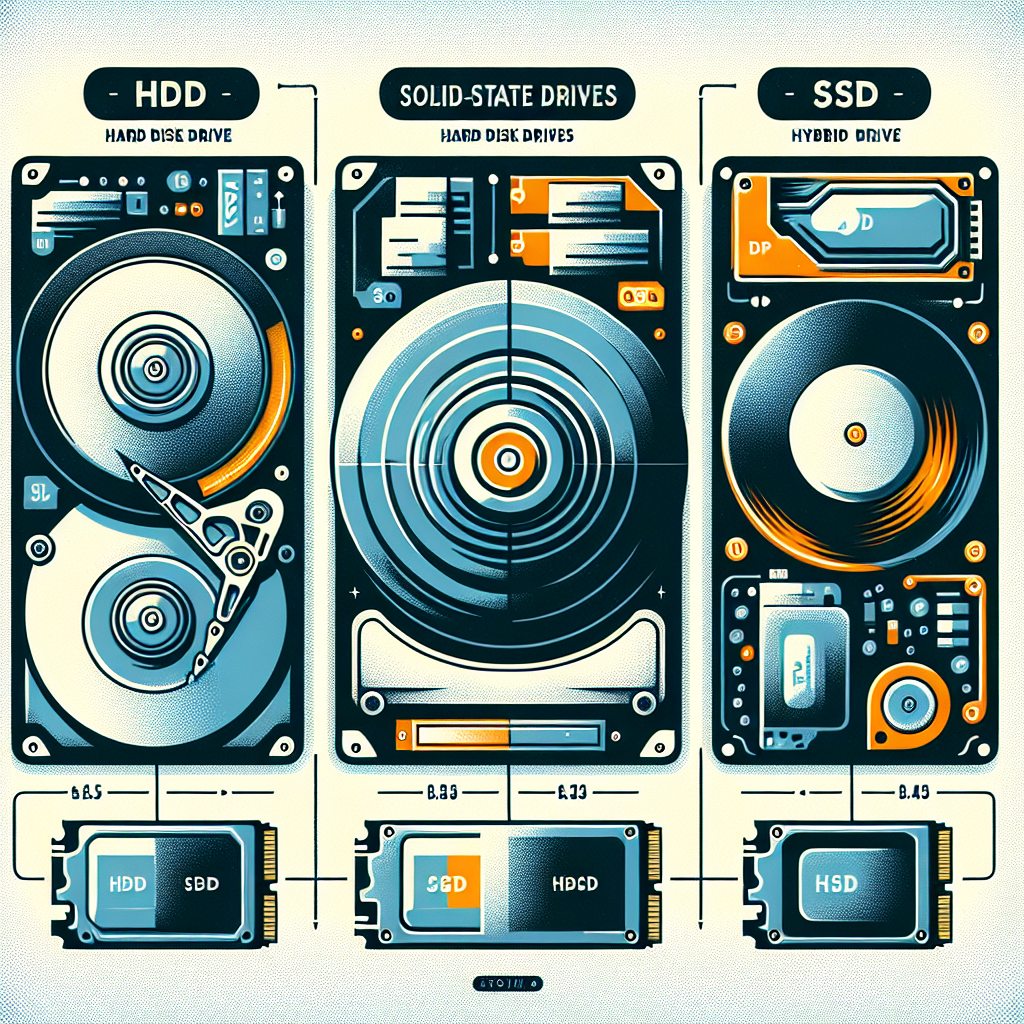Your cart is currently empty!
Understanding the Differences Between HDDs, SSDs, and Hybrid Drives

When it comes to choosing the right storage solution for your computer, there are several options to consider. The three most common types of drives are Hard Disk Drives (HDDs), Solid State Drives (SSDs), and Hybrid Drives. Each of these drives has its own unique features and benefits, so it’s important to understand the differences between them before making a decision.
Hard Disk Drives (HDDs) have been around for decades and are the most traditional type of storage drive. They use spinning disks to store data, and have a larger storage capacity compared to SSDs. HDDs are generally more affordable than SSDs, making them a popular choice for budget-conscious consumers. However, HDDs are also slower than SSDs in terms of read and write speeds, which can lead to slower performance when accessing and transferring data.
Solid State Drives (SSDs) are a newer type of storage drive that use flash memory to store data. SSDs are significantly faster than HDDs, with faster read and write speeds that can greatly improve performance. SSDs are also more durable than HDDs, as they have no moving parts that can break or fail. However, SSDs are typically more expensive than HDDs and have a lower storage capacity. This means that SSDs are often used as a primary drive for operating systems and frequently used applications, while HDDs are used for storing larger files and data.
Hybrid Drives combine the best of both worlds by combining the speed of an SSD with the storage capacity of an HDD. Hybrid drives use a small amount of flash memory to store frequently accessed data, while the majority of data is stored on a traditional spinning disk. This allows hybrid drives to offer faster performance than HDDs, while still providing a larger storage capacity. Hybrid drives are a cost-effective solution for users who want the benefits of an SSD without the high price tag.
In conclusion, choosing the right storage drive for your computer depends on your specific needs and budget. If you need a large storage capacity at an affordable price, an HDD may be the best option for you. If you prioritize speed and performance, an SSD is the way to go. And if you want a balance of speed and storage capacity, a hybrid drive may be the perfect solution. By understanding the differences between HDDs, SSDs, and hybrid drives, you can make an informed decision that meets your needs and preferences.

Leave a Reply